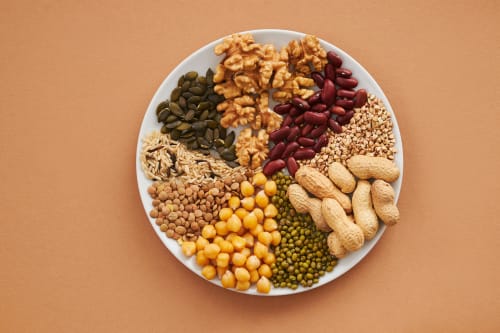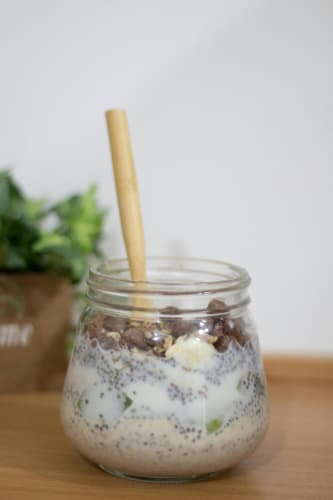Introduction
Glowing, healthy skin is a universal desire, one that transcends age, culture, and lifestyle.
We all strive for that radiant complexion, whether it’s for confidence, beauty, or overall health.
The key to achieving glowing skin often lies not just in skincare products, but in the nutrients we nourish our bodies with.
One such superfood that’s gaining popularity for its skin benefits is sunflower seeds.
Packed with essential vitamins, minerals, and antioxidants, sunflower seeds offer a natural way to enhance your skin’s health from the inside out.
My mom, a long-time advocate of natural remedies, has sworn by sunflower seeds for years.
She believes that their high vitamin E content, along with omega-6 fatty acids and zinc, helps maintain her skin’s moisture, elasticity, and overall glow.
Sunflower seeds are loaded with antioxidants that protect the skin from free radicals, which can lead to premature aging. In fact, a study published in the Journal of Clinical Aesthetic Dermatology highlights that vitamin E plays a critical role in reducing skin damage caused by UV rays.
Over the years, I’ve seen the difference these tiny seeds have made in her complexion, and I’ve come to appreciate their value too.

In this article, we’ll explore how sunflower seeds can be your secret weapon for healthier, more radiant skin.
Certainly! Here is the revised version with relevant external links to credible sources where applicable:
What Makes Sunflower Seeds a Skin Superfood?
Sunflower seeds are more than just a crunchy snack; they are a nutritional powerhouse with skin benefits that have earned them the title of “skin superfood.” Packed with essential vitamins, minerals, and antioxidants, sunflower seeds offer a range of nutrients that work together to promote healthy, glowing skin. Let’s dive deeper into their nutritional profile and explore how they can enhance skin health.
Nutritional Profile of Sunflower Seeds
High in Vitamin E: The Antioxidant Powerhouse
Sunflower seeds are an excellent source of vitamin E, a potent antioxidant that plays a critical role in protecting the skin from oxidative stress and environmental damage. Just one ounce of sunflower seeds can provide up to 49% of the Recommended Daily Allowance (RDA) of vitamin E. Vitamin E helps neutralize free radicals—unstable molecules that can damage skin cells and lead to premature aging.
A study published in the Journal of Clinical Aesthetic Dermatology found here found that vitamin E can reduce the harmful effects of UV radiation, acting as a natural defense against sun damage. This helps prevent sunburns, wrinkles, and age spots while promoting overall skin repair.
Loaded with Essential Fatty Acids
Sunflower seeds are rich in omega-6 fatty acids, particularly linoleic acid, which is essential for maintaining the skin’s moisture barrier. Fatty acids play a crucial role in the production of lipids that help keep the skin hydrated and protected.
A study published in Dermato-Endocrinology here highlights how omega-6 fatty acids like linoleic acid are involved in maintaining the integrity of the skin’s lipid barrier. This prevents moisture loss and helps keep the skin soft, supple, and glowing. Omega-6 fatty acids also reduce inflammation, which is key for people with sensitive or acne-prone skin.
Rich in Minerals: Selenium, Zinc, and Magnesium
In addition to vitamins, sunflower seeds are packed with important minerals like selenium, zinc, and magnesium, all of which play pivotal roles in skin health.
- Selenium acts as a powerful antioxidant, protecting skin cells from oxidative damage caused by UV rays and environmental toxins. It also has anti-inflammatory properties that help soothe irritated skin.
- Zinc is crucial for collagen production, the protein responsible for maintaining skin elasticity and preventing wrinkles. Zinc also helps heal damaged skin and fight acne by regulating oil production.
- Magnesium supports skin hydration and helps combat the effects of stress, which can exacerbate skin conditions like eczema and psoriasis.
Why These Nutrients Matter for Your Skin
Each of these nutrients contributes to skin health in different but complementary ways. Together, they help keep your skin hydrated, smooth, and free of damage. Let’s break down how each of these nutrients specifically benefits your skin.
Vitamin E and Its Role in Skin Repair
Vitamin E is a well-known antioxidant that plays a significant role in the body’s ability to repair damaged skin cells. It helps protect the skin from UV radiation, which can cause skin aging, dark spots, and even skin cancer. A study published in the International Journal of Dermatology found here found that vitamin E, when applied topically, can reduce the formation of wrinkles and improve skin texture.
Furthermore, vitamin E’s ability to protect the skin from free radicals also reduces inflammation and supports overall skin healing. It can be particularly beneficial for those with sunburned or irritated skin, as it accelerates the healing process.
Fatty Acids for Hydration and Elasticity
The omega-6 fatty acids found in sunflower seeds, particularly linoleic acid, help to maintain the skin’s moisture barrier. A healthy moisture barrier prevents water loss from the skin, keeping it hydrated and plump. This helps reduce the appearance of fine lines and keeps the skin soft and smooth.
Studies have shown that a deficiency in linoleic acid can lead to dry, flaky skin, while an adequate intake of omega-6 fatty acids helps keep the skin hydrated, even in harsh conditions. Source: American Journal of Clinical Nutrition.
Minerals That Boost Collagen Production
Zinc and magnesium are essential for collagen formation, which is the structural protein responsible for keeping skin firm and elastic. Collagen also helps to reduce wrinkles, making it vital for maintaining a youthful appearance.
A study in the Journal of Dermatological Science found here revealed that zinc stimulates the production of collagen in the skin, which contributes to improved skin firmness and elasticity. Additionally, magnesium supports the synthesis of fibroblasts, the cells responsible for collagen production. This is particularly helpful in preventing the signs of aging, such as sagging skin and loss of firmness.
Benefits of Sunflower Seeds for Skin
Now that we understand the nutritional profile of sunflower seeds, let’s explore the specific benefits they offer for the skin.
1. Fights Free Radicals
How Vitamin E Neutralizes Skin-Damaging Free Radicals
As mentioned, vitamin E is a powerful antioxidant that neutralizes free radicals—unstable molecules that can damage skin cells and contribute to skin aging. Free radicals are often triggered by environmental factors such as pollution, UV radiation, and smoking. By consuming sunflower seeds, you help your body combat these harmful effects, reducing the risk of wrinkles, age spots, and sunburns.
A study from the Journal of Dermatological Science found here found that antioxidant-rich foods like sunflower seeds can help mitigate the oxidative stress caused by UV exposure, promoting skin health and preventing premature aging.
Prevention of Premature Aging
Regular consumption of sunflower seeds, especially due to their high vitamin E content, can help delay signs of aging like fine lines, wrinkles, and sagging skin. By protecting against free radicals, sunflower seeds help maintain the skin’s youthful appearance.
2. Improves Skin Hydration
How Linoleic Acid Enhances Skin’s Moisture Barrier
Linoleic acid, a type of omega-6 fatty acid found in sunflower seeds, is crucial for maintaining the skin’s moisture barrier. A healthy moisture barrier prevents water loss from the skin, keeping it hydrated and plump. This helps reduce the appearance of fine lines and keeps the skin soft and smooth.
Studies have shown that a deficiency in linoleic acid can lead to dry, flaky skin, while an adequate intake of omega-6 fatty acids helps keep the skin hydrated, even in harsh conditions.
The Role of Omega-6 Fatty Acids
Omega-6 fatty acids also help reduce inflammation in the skin, making them beneficial for people with acne, eczema, or psoriasis. Sunflower seeds are an excellent source of omega-6, providing a natural way to combat skin inflammation and improve overall skin health.
3. Boosts Collagen Production
Zinc and Magnesium’s Role in Collagen Formation
Collagen is essential for maintaining skin’s elasticity and preventing sagging. Zinc and magnesium, found in sunflower seeds, are vital for collagen production. Zinc activates enzymes that help produce collagen, while magnesium supports fibroblast function, which is responsible for creating collagen fibers.
A study in The Journal of Nutrition found here found that zinc and magnesium supplementation could enhance skin elasticity, reduce wrinkle depth, and improve overall skin firmness.
How This Improves Skin Elasticity and Reduces Wrinkles
Increased collagen production leads to firmer, more youthful skin, helping to reduce the appearance of wrinkles and fine lines. Sunflower seeds, with their zinc and magnesium content, play a critical role in supporting skin elasticity and collagen synthesis.
4. Soothes Inflammation
Anti-Inflammatory Properties of Sunflower Seeds
Sunflower seeds have powerful anti-inflammatory properties due to their high content of antioxidants like vitamin E and phenolic compounds. These properties make them beneficial for reducing skin conditions like acne, eczema, and rosacea, which are often triggered by inflammation.
Research in The Journal of Inflammation found here has shown that sunflower seeds, through their antioxidant content, can help reduce inflammation in the skin, promoting a clearer complexion.
5. Promotes Even Skin Tone
Vitamin E’s Effect on Hyperpigmentation and Dark Spots
Vitamin E helps reduce hyperpigmentation and dark spots caused by sun exposure or acne. It works by inhibiting the production of melanin, the pigment responsible for dark spots. Regular consumption of sunflower seeds, which are rich in vitamin E, can promote an even skin tone and reduce the appearance of dark spots.
A study in the Journal of Dermatology found that vitamin E could lighten the skin by preventing melanin overproduction, thus contributing to an overall brighter and more even complexion.
By including sunflower seeds in your diet, you’re not only benefiting from their delicious flavor but also unlocking a natural, affordable way to nourish your skin. Their unique combination of vitamin E, omega-6 fatty acids, zinc, and magnesium makes them a true superfood for promoting glowing, youthful, and healthy skin.
How to Include Sunflower Seeds in Your Diet
Sunflower seeds are a fantastic, nutritious addition to your daily diet, and they’re super easy to incorporate into meals and snacks. Whether you’re a teenager looking for healthy food choices or simply want to glow from the inside out, sunflower seeds can help boost your skin health and overall well-being. Here’s how to add sunflower seeds to your diet in fun and easy ways.
1. Snack Ideas with Sunflower Seeds
- Roasted Sunflower Seeds for a Quick Bite
One of the simplest ways to enjoy sunflower seeds is by eating them as a snack. You can buy pre-roasted sunflower seeds or roast them yourself at home. Just toss raw seeds with a little olive oil, salt, and your favorite seasonings, then bake them at 350°F (175°C) for about 10-15 minutes. They’re crunchy, satisfying, and packed with nutrients. - Sunflower Seed Butter: A Delicious Alternative
Instead of regular peanut butter, try sunflower seed butter. It’s a delicious and healthy alternative, perfect for spreading on toast, adding to smoothies, or using as a dip for fruits and veggies. You can easily find it in stores or make your own by blending roasted sunflower seeds until smooth.
2. Recipes to Try at Home
- Smoothies Packed with Sunflower Seed Goodness
Add sunflower seeds to your smoothie for a nutritious boost. Simply blend your favorite fruits with some yogurt or almond milk and toss in a tablespoon of sunflower seeds for extra texture and nutrients. The healthy fats and vitamins will help nourish your skin and keep you energized all day. - Making sunflower seed chikki, if you are an Indian you will be really famililar with the peanut, chikki which are made from roased peanuts, and solidified sugar, you can do the same with sunflower seeds, which is inturn tasty and healthy.
- Homemade Granola with Sunflower Seeds
Making your own granola is simple, and adding sunflower seeds can take it to the next level. Mix oats, honey, dried fruits, and sunflower seeds. Bake in the oven until golden brown, then enjoy it with milk or as a topping for yogurt.
3. Creative Ways to Use Sunflower Seeds
- Sprinkle on Salads for Extra Crunch
Sunflower seeds add a tasty crunch to any salad. Simply sprinkle a handful on top of your favorite greens, and enjoy the added flavor and texture. - Use as a Topping for Yogurt and Oatmeal
For a nutrient-packed breakfast, sprinkle sunflower seeds on top of yogurt or oatmeal. They pair perfectly with fresh fruits, providing extra fiber, protein, and healthy fats.
By incorporating sunflower seeds into these easy, tasty meals and snacks, you can enjoy their skin-loving benefits every day!
DIY Skincare with Sunflower Seeds
Sunflower seeds aren’t just great for your skin when you eat them—they can also be used topically to help nourish and brighten your complexion. Here are two simple DIY skincare recipes using sunflower seeds that can help you achieve glowing, healthy skin. But remember, before trying any new skincare treatment, it’s essential to do a patch test to avoid any allergic reactions.
1. Sunflower Seed Oil for Skin
Benefits of Cold-Pressed Sunflower Seed Oil
Cold-pressed sunflower seed oil is a natural powerhouse for skincare. Rich in vitamin E, essential fatty acids, and antioxidants, it works wonders in moisturizing the skin, reducing inflammation, and protecting against free radical damage. It is known for its anti-aging properties and ability to improve skin texture by supporting the skin’s natural barrier.
How to Use Sunflower Seed Oil as a Moisturizer
To use sunflower seed oil as a moisturizer, follow these simple steps:
- Cleanse your face with a gentle facial cleanser to remove dirt and impurities.
- Apply a few drops of sunflower seed oil to your fingertips.
- Gently massage the oil onto your face in circular motions. Focus on dry or dull areas.
- Allow the oil to absorb into the skin for a few minutes before applying any makeup or sunscreen.
Sunflower seed oil is lightweight and non-comedogenic, making it suitable for most skin types, including sensitive skin.
2. Sunflower Seed Face Mask Recipe
Ingredients and Steps to Make Your Own Mask
Making a sunflower seed face mask at home is easy and effective. Here’s a simple recipe:
- 1 tablespoon sunflower seed oil
- 1 tablespoon honey (for its hydrating and antibacterial properties)
- 1 tablespoon plain yogurt (to soothe and exfoliate the skin)
Instructions:
- Mix the sunflower seed oil, honey, and yogurt in a small bowl until you have a smooth paste.
- Apply the mask evenly on your face, avoiding the delicate eye area.
- Leave the mask on for 10-15 minutes, allowing it to absorb and nourish your skin.
- Rinse off with lukewarm water and gently pat your face dry.
Benefits of Topical Application for Skin Brightness
This DIY sunflower seed face mask helps hydrate and brighten the skin. The combination of sunflower seed oil, honey, and yogurt promotes a glowing complexion and can reduce the appearance of dark spots and hyperpigmentation over time.
Important Warning: Patch Test and Allergic Reactions
Before using sunflower seed oil or any homemade skincare products, always perform a patch test. To do this:
- Apply a small amount of the product to a small area of your skin (such as behind your ear or on your wrist).
- Wait for 24 hours to check for any signs of irritation, redness, or itching.
- If you experience any discomfort or allergic reaction, discontinue use immediately.
While sunflower seeds are generally safe for most people, some individuals may be allergic to sunflower seeds or sunflower seed oil. Symptoms of an allergy may include redness, swelling, or rash, especially if applied to the face. If you have a known seed or nut allergy, it’s essential to consult with a dermatologist before using sunflower seed-based products.
FAQs About Sunflower Seeds and Skin Health
Sunflower seeds are packed with nutrients that can help improve your skin’s appearance, but there are some common questions that people have about them. From allergies to whether they’re better raw or roasted, here’s a deeper dive into what you need to know about sunflower seeds and their role in skin health.
1. Can Sunflower Seeds Cause Allergies?
Understanding Possible Side Effects
While sunflower seeds are generally considered safe for most people, some individuals may be allergic to them. Symptoms of a sunflower seed allergy can include skin irritation, rashes, swelling, or even more severe reactions such as difficulty breathing. If you have a history of allergies to seeds or nuts, you should be cautious when trying sunflower seeds.
Tips to Avoid Overconsumption
As with any food, moderation is key. Sunflower seeds are nutrient-dense, and consuming them in large quantities could potentially lead to digestive discomfort, as they are high in fiber. Additionally, too many sunflower seeds could contribute to excess calorie intake, which might affect overall health in the long term.
If you’re new to sunflower seeds, start with a small serving (about 1-2 tablespoons) to see how your body reacts. If no allergic reaction occurs, you can gradually increase the amount.
2. How Much Sunflower Seeds Should You Eat for Glowing Skin?
Recommended Daily Intake
For skin health, the general recommendation is to eat a small handful (about 1-2 tablespoons) of sunflower seeds daily. This portion provides a good balance of vitamin E, essential fatty acids, and minerals that help promote skin hydration, repair, and anti-aging effects.
Balancing Sunflower Seeds with Other Foods
While sunflower seeds are fantastic for your skin, it’s essential to maintain a balanced diet with a variety of nutrient-dense foods. Sunflower seeds should be part of a diverse diet that includes fruits, vegetables, whole grains, and other sources of healthy fats. This ensures that you’re getting all the necessary nutrients to support overall health, including your skin.
3. Are Roasted or Raw Sunflower Seeds Better?
Nutritional Differences Between Raw and Roasted
The difference between raw and roasted sunflower seeds lies mainly in the method of preparation. Raw sunflower seeds retain all their natural oils and nutrients, while roasting them can lead to slight nutrient losses, especially the vitamin E content. However, roasting may improve the taste and make the seeds easier to digest.
Which Option is Better for Skin Benefits?
For skin benefits, raw sunflower seeds are generally a better choice, as they retain more of their nutrients. Roasting at high temperatures can degrade some of the antioxidants like vitamin E, which play a key role in protecting the skin from free radicals and promoting a healthy complexion. Nonetheless, both raw and roasted sunflower seeds offer valuable benefits for your skin.
Additional Benefits of Sunflower Seeds Beyond Skin Health
While sunflower seeds are best known for their skincare benefits, they provide many other advantages for your overall health.
1. Boosts Overall Immunity
How Antioxidants and Minerals Keep You Healthy
Sunflower seeds are rich in antioxidants, including vitamin E, which play a role in enhancing your immune system. By neutralizing free radicals in the body, they help reduce inflammation and protect cells from damage. They also contain selenium and zinc, both of which are important for maintaining a strong immune response.
Connection Between Skin and Overall Health
Your skin’s health is closely connected to your overall well-being. A strong immune system can help fight off infections and inflammation that could affect the skin. By boosting immunity with sunflower seeds, you’re not only protecting your internal health but also supporting your skin’s ability to heal and regenerate.
2. Supports Heart Health
Role of Fatty Acids and Vitamin E in Cardiovascular Health
Sunflower seeds are an excellent source of polyunsaturated fats, particularly omega-6 fatty acids. These healthy fats support heart health by improving cholesterol levels and reducing inflammation. Additionally, sunflower seeds are rich in vitamin E, which helps protect against oxidative stress that can lead to cardiovascular disease.
3. Benefits for Hair and Nails
How Sunflower Seeds Promote Healthy Hair Growth
The zinc and vitamin E found in sunflower seeds can promote healthy hair growth by supporting the scalp and protecting the hair follicles from oxidative stress. These nutrients help maintain the health of your hair, preventing dryness, breakage, and thinning.
Strengthening Nails with Essential Nutrients
Sunflower seeds also contain biotin, an essential B-vitamin that is important for healthy nails. Biotin supports the production of keratin, a protein that strengthens the nail bed and prevents brittleness. Regular consumption of sunflower seeds may help you achieve stronger, healthier nails.
Common Myths About Sunflower Seeds and Skin
There are several myths about sunflower seeds and their effect on skin health. Let’s debunk some of them.
1. Myth: Eating Sunflower Seeds Causes Acne
Breaking Down the Truth About Skin Oils and Acne
One of the most common misconceptions is that sunflower seeds can cause acne. However, sunflower seeds are non-comedogenic, meaning they won’t clog your pores. The omega-6 fatty acids in sunflower seeds can actually help maintain skin hydration and elasticity, which may reduce acne-related dryness or irritation. The key to skin health is maintaining a balance of oils, and sunflower seeds can support this balance when consumed in moderation.
2. Myth: Sunflower Seeds Can Replace Skincare Products
Why a Balanced Approach is Key
While sunflower seeds are great for promoting glowing skin, they should be considered as part of a broader skincare routine. They are not a replacement for topical skincare products like moisturizers, serums, or sunscreen. A good skincare regimen involves a mix of proper hydration, protection from the sun, and gentle cleansing, along with a healthy diet that includes nutrient-rich foods like sunflower seeds.
3. Myth: Only Women Benefit from Sunflower Seeds
Why Sunflower Seeds Are Great for Everyone
Another common myth is that sunflower seeds are primarily beneficial for women. In fact, sunflower seeds offer health benefits for both men and women. The nutrients found in sunflower seeds, like zinc, vitamin E, and essential fatty acids, support skin health, immunity, heart health, and hair growth in both genders.
Conclusion
Sunflower seeds are a simple, affordable superfood that can benefit your skin, health, and overall well-being. From fighting free radicals to promoting collagen production and improving hydration, these tiny seeds pack a big punch when it comes to skin benefits. By incorporating sunflower seeds into your diet and skincare routine, you can enjoy glowing, youthful skin while also supporting your heart, hair, and nails.
As my mom always says, sunflower seeds are more than just a snack—they’re a key to maintaining healthy skin and body, inside and out.
For further reading and to dive deeper into the benefits of sunflower seeds and other superfoods, check out the following articles:
- Sunflower Seeds: Benefits and Uses – Healthline
- Vitamin E and Its Role in Skin Health – PubMed Study
- DIY Skincare Recipes with Natural Ingredients – Wellness Mama
With the right approach, sunflower seeds can be a game-changer for your skin and overall health, making them a must-try addition to your daily routine!











Leave a Reply